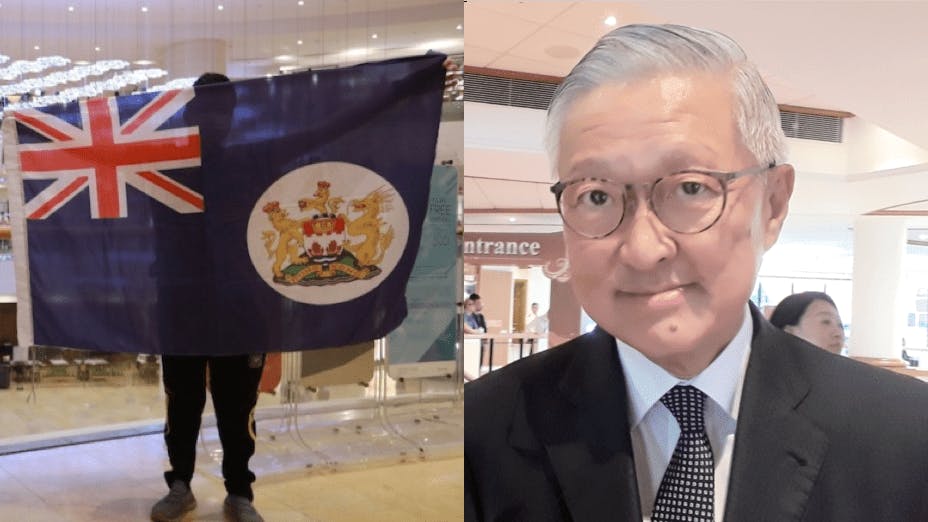首任終審法院首席法官李國能2020年6月2日在《明報》撰文談及港區國安法。他提到特區政府有憲政責任就23條立法,唯過去一直未能做到,更甚者未來多年也立法無望,稱「我們沒有絲毫信心斷言香港能在2047年前立法」。他說同時考慮過去數年香港發生的事,認為全國人民代表大會授權人大常委會為香港制定國家安全法的決定,是可以理解及合理的。但問題的癥結,在於擬議法例之實際內容。
須不具追溯力 在港公開公正審訊
「港區國安法」草案細節未曾曝光。就李國能理解,國安法設計着意於符合香港的法律制度,應當與建基於普通法的香港法律制度原則連貫一致。
李國能提出七項建議:
- 國安法必須不具追溯力。
- 罪行的定義必須合理確切(with reasonable certainty)。
- 罪行的涵蓋範圍必須限制於達到立法目的所必要的程度。
- 調查的權力必須受香港法律規管,特別是,除非獲得司法授權,處所不得被搜查,電話不得被監聽。
- 檢控的決定應依據香港的《檢控守則》。
- 審訊應在香港公開公正地進行。
- 被告應被假定無罪,並必須在無合理疑點下定罪。
他表示,法律業界與社會各界都將仔細審視國安法草案。當草案根據《基本法》規定進行諮詢時,香港特區政府必須盡一切努力,確保擬議法例符合香港法律制度的原則。市民可合理預期政府在這一點上將全面履行其責任。
禁持外國護照法官處理 無充分理由
有人主張只容許沒有外國居留權的中國籍法官審理因國安法產生的案件。李國能認為,如此的要求限制了各級法院中許多相信持有外國護照的全職香港法官,並有損《基本法》所保障的司法獨立原則。
所有法官獲委任後,根據《基本法》及香港法例規定,都要宣誓擁護《基本法》,效忠中華人民共和國香港特別行政區,服務香港特別行政區,並無畏無私地主持正義。法官履行此誓言的能力不會受其持有外國護照影響。
李國能文章英文版本
1. Under Article 23 of the Basic Law, the Hong Kong Special Administrative Region has a constitutional duty to enact national security legislation covering seven areas. In the last 23 years, we have failed to do so. Only one attempt had been made. Further, there is no prospect of Hong Kong doing so for many years to come. Indeed it cannot be said with any confidence that we will be able to do so before 2047.
2. In these circumstances and having regard to events in Hong Kong in the last few years, the decision of the National People’s Congress to authorize its Standing Committee to enact national security legislation for Hong Kong is understandable and justifiable. It will deal with some areas covered by BL23. But the crux of the matter is in the actual content of the proposed law.
3. The details of the draft legislation have not been revealed. As I understand it, the intent is that the legislation will be designed to fit Hong Kong’s legal system. In order to do so, it should be consistent with the principles of our legal system based on the common law. This intent must be fully reflected in the proposed law.
4. The law must not be retrospective. Offences must be defined with reasonable certainty. Their scope must be restricted to what is necessary to achieve the legislative purpose. Investigatory powers must be governed by Hong Kong law. In particular, premises cannot be searched and phones cannot be tapped unless judicial authorization has been obtained. Prosecution decisions should be made in accordance with our Prosecution Code. Trials should be conducted in Hong Kong openly and fairly. The accused would be presumed innocent and guilt must be established beyond reasonable doubt.
5. No doubt, the legal profession and the community would be scrutinizing the draft law. When consulted as required by the Basic Law, the HKSAR Government must make every effort to ensure that the proposed law conforms to the principles of our legal system. Citizens have every right to expect that the Government would fulfill its responsibility fully in this regard.
6. The suggestion has been made that only judges who are Chinese nationals with no right of abode in any foreign country should be allowed to adjudicate cases arising from the legislation. This gives rise to serious concern. Such a requirement will bar not only non-permanent overseas judges in the Court of Final Appeal but also many full time Hong Kong judges at all levels of court, both local and expatriates, who are believed to hold foreign passports. (I understand that most of our full time judges are local judges and that the number of expatriate full time judges is now down to well below 10% of the total.)
7. Such a requirement would be detrimental to judicial independence as guaranteed by the Basic Law. Under it, judges are chosen on the basis of their judicial and professional qualities and are appointed by the Chief Executive on the recommendation of an independent commission.
8. On appointment, as required by the Basic Law and legislation, all judges swear the judicial oath to uphold the Basic Law, to bear allegiance to the HKSAR of the People’s Republic of China, to serve the HKSAR and to administer justice without fear or favour. A judge’s ability to fulfill this oath fully is not affected by his holding a foreign passport. There is no conflict or perceived conflict. Ms Elsie Leung, the former Vice-chairman of the Basic Law Committee, has already expressed the same view. Whatever the arrangements in other jurisdictions may be, barring our judges who hold a foreign passport from dealing with national security cases in Hong Kong would not be justified.
9. It should be noted that since 1997, such judges had dealt with sensitive cases, such as the case on the constitutionality of the law criminalizing desecration of the national or regional flag and the Congo case on the doctrine of state immunity. No one had suggested that they should have been disqualified from sitting in these cases.




































